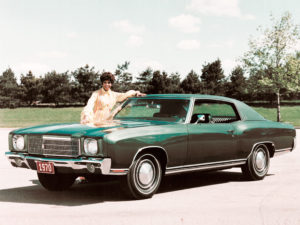The new year is here, which means buying a new EV, PHEV, or fuel cell vehicle could net a sizable tax credit from the federal government. If you’re considering buying a new car and want to take advantage, there are a few things you’ll need to know, so let’s get a quick refresher.
The new clean vehicle tax credits remove the 200,000-unit sale threshold that previously cut Tesla, GM, and Toyota from eligibility. In its place, there are requirements that the vehicle must have undergone final assembly in North America and limits on the MSRP to $80,000 for vans, SUVs, and trucks, and $55,000 for other models. Other requirements on raw materials sourcing will come into effect in March, so some of the vehicles on this list may not be eligible for the entire tax credit after then.

The IRS maintains a list of vehicle models currently eligible for a tax credit. Some models you see here are plug-in hybrids, while many feature full electric powertrains. It’s worth noting that the new price limits could exclude specific configurations, so it’s a good idea to spend time configuring a vehicle ahead of time to make sure it fits. Finally, remember that we’re talking about tax credits here, so you won’t get an instant check or payment when you purchase.
Clean vehicle tax credit eligible models
Audi
- 2023 Audi Q5 e Quattro PHEV
BMW
- 2021, 2022, 2023 BMW 330e
- 2021, 2022, 2023 BMW X5 xDrive45e
Ford
- 2022, 2023 Ford Escape PHEV
- 2022, 2023 Ford E-Transit
- 2022, 2023 Ford F-150 Lightning
- 2022, 2023 Ford Mustang Mach-E
- 2022, 2023 Lincoln Aviator Grand Touring (PHEV)
- 2022, 2023 Lincoln Corsair Grand Touring (PHEV)

General Motors
- 2022, 2023 Chevrolet Bolt
- 2022, 2023 Chevrolet Bolt EUV
- 2022, 2023 Cadillac Lyriq
Nissan
- 2021, 2022, 2023 Nissan Leaf S
- 2021, 2022 Nissan Leaf S Plus
- 2021, 2022 Nissan Leaf SL Plus
- 2021, 2022 Nissan Leaf SV
- 2021, 2022, 2023 Nissan Leaf SV Plus
Rivian
- 2022, 2023 Rivian R1S
- 2022, 2023, Rivian R1T
Stellantis
- 2022, 2023 Chrysler Pacifica PHEV
- 2022, 2023 Jeep Wrangler 4xe
- 2022, 2023 Jeep grand Cherokee 4xe
Tesla
- 2022, 2023 Tesla Model 3 RWD
- 2022, 2023 Tesla Model 3 Long Range
- 2022, 2023 Tesla Model Y All-Wheel Drive 7 Seat
- 2022, 2023 Tesla Model Y Long-Range 7 Seat
- 2022, 2023 Tesla Model Y Performance 7 Seat
- 2022, 2023 Tesla Model Y AWD 5 Seat
- 2022, 2023 Tesla Model Y Long Range 5 Seat
- 2022, 2023 Tesla Model Y Performance 5 Seat

Volkswagen
- 2023 Volkswagen ID.4
- 2023 Volkswagen ID.4 Pro
- 2023 Volkswagen ID.4 Pro S
- 2023 Volkswagen ID.4 S
- 2023 Volkswagen ID.4 AWD Pro
- 2023 Volkswagen ID.4 AWD Pro S
Volvo
- 2022 Volvo S60 PHEV
- 2022 Volvo S60 Extended Range
- 2023 Volvo S60 T8 Recharge Extended Range

Other automakers
Hyundai
Jaguar
Kia
Mazda
Mercedes-Benz
Mitsubishi
Subaru
Toyota
The IRS said these automakers have “entered into a written agreement with us to become a ‘qualified manufacturer’ but haven’t yet submitted a list of specific makes and models that are eligible.”

Qualified Vehicle Requirements
Several factors impact a vehicle’s eligibility for a tax credit, including:
- 7 kilowatt-hour minimum battery capacity
- Gross vehicle weight rating of less than 14,000 pounds
- Be made by a qualifying manufacturer
- Undergo final assembly in North America
The vehicle must also be purchased new, and the dealer or seller must report your name and taxpayer ID to the IRS.
Who qualifies for clean vehicle tax credits in 2023?
If you want to get a credit, you’ll have to buy the vehicle for your use, not to resell. You’ll also need to use the vehicle primarily in the United States. Income limits also apply, and you can use your tax information from the previous year as a guide. The IRS notes that the credit is nonrefundable, meaning you can’t get back more money than you owe in taxes. For example, if you only owe $5,000 on your taxes and buy a qualifying vehicle, your tax credit will be $5,000 instead of $7,500.
- $300,000 for married couples filing jointly
- $225,000 for heads of households
- $150,000 for all others
How to claim a clean vehicle tax credit
The IRS says to use Form 8936 to calculate your credit, and you can find the form and instructions on the IRS website.








